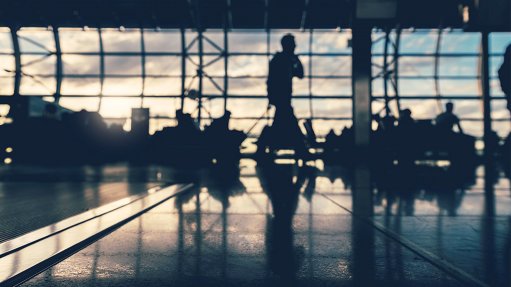
Adding its weight to the call to urgently lift restrictions to save South Africa’s economy is the tourism sector, which was among the first and hardest hit by the lockdown measures instituted in the State of Disaster.
The second-quarter gross domestic product (GDP) contraction indicates the devastating impact of the lockdown restrictions on the economy, says a release by the Wits School of Governance on September 11.
According to the release, infectious disease specialists confirm there is “no public health reason” for the tourism sector to remain closed as South Africa already has community infections and, therefore, needs to manage the risk to the general community and the traveller in an environment in which the disease is already present.
“There is no reason why tourism poses a greater risk than any other sector by being open,” says Wits School of Governance Social Security Systems Administration and Management Studies chair Professor Alex van den Heever.
Business Leadership South Africa (BLSA), meanwhile, has also endorsed the view that restrictions be lifted, including the curfew requiring restaurants to be closed between 22:00 and 04:00, public gathering bans and the blanket ban on international travel.
However, BLSA says this is provided Covid-19 health and safety protocols are followed at all times.
“The health protocols, including physical distancing and wearing of masks, are well entrenched and should be the only requirements for the resumption of activities that still operate under restrictions,” BLSA said in a statement issued off the back of the announcement of the second-quarter GDP figures.
Van den Heever agrees, saying the focus now should be to resolve how South Africa manages the risk of living with the virus, and how the country can best mitigate the consequences of people being positive in different contexts.
“We can’t just shut everything down. The main issue is preventing super spreading by being careful and attentive to any instances where protocols need to be updated or where protocol adherence is a problem,” he explains.
Apart from being able to reopen safely, Van den Heever warns that South Africa must, as far as possible, avoid the requirement of a quarantine period.
“It is imperative that safe alternatives to quarantine approaches also be considered. Careful consideration needs to be given to developing such an approach as it will remove a considerable barrier to international travel. Workable options can be developed in conjunction with infectious disease specialists and institutionalised into health protocols.”
According to the professor, if good protocols are adhered to, South Africa should be able manage the risks posed by Covid-positive travellers as well as those situations where travellers can be infected within South Africa’s borders.
Much of South Africa is already in this position, with open businesses subject to health protocols, and he therefore laments that it is “unclear what additional risks are posed by international travel that are not already present and managed locally”.
It is imperative for every facet of the economy to be able to function to the fullest extent possible within the scope of the health protocols, says BLSA.
“The country simply cannot afford to continue operating with further restrictions. Doing so will delay any meaningful economic recovery with more businesses being forced to close down and jobs being lost.”
One industry in particular has the power and potential to reignite South Africa’s ailing economy, but to do so it is going to need more than support from South Africans, and government giving the green light for reopening borders, says the association.
South Africa’s tourism sector employs 1.5-million people directly and indirectly, 70% of whom are women. As an export sector, it generates R120-billion in foreign exchange from visitor receipts, some 8.7% of South Africa’s exports and is second only to mining as an export sector.
“Tourism can be South Africa’s economic lifeline, but only if international borders are opened up, and soon,” says Tourism Business Council of South Africa CEO Tshifhiwa Tshivhengwa.
“We are appealing to the government to open our borders. Our source markets are waiting to travel, so let's save jobs and the economy.”